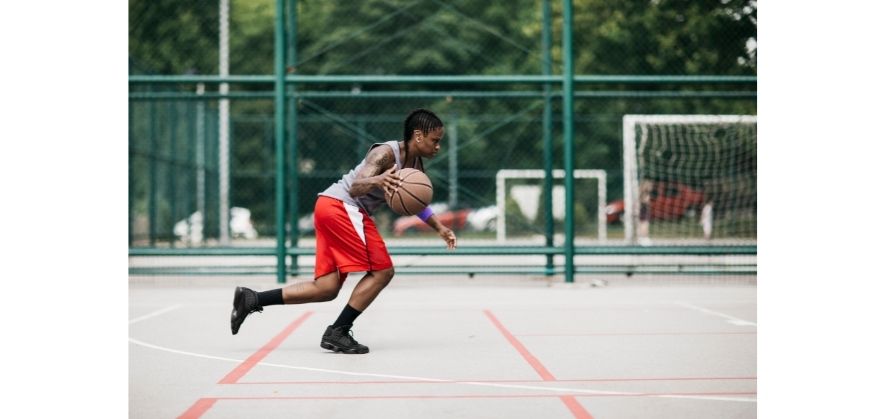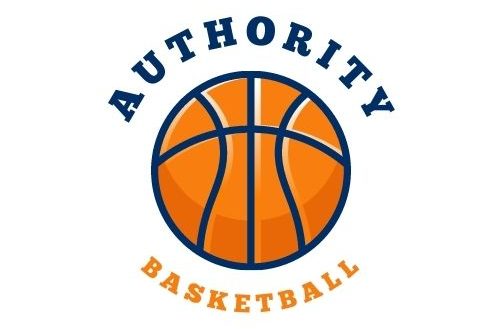Playing basketball is an intense workout that requires a lot of strength and agility.
The sport demands quick movements to avoid being tackled or tripped up by opponents.
It also requires precise movements for passing, shooting, dribbling, and rebounding.
All these activities build muscle power and speed.
This can be achieved through resistance training as well as cardiovascular exercises.
But one question that people ask quite often is whether the game can help people gain core body strength.
You see, not everyone wants to go to the gym and lift weights in order to build up hardiness.
Some people prefer to play sports as a way of “hitting two birds with one stone” as they are more exciting and can help build up that strength at the same time.
If you’re a basketball player, then you’re in luck!
Basketball does make people stronger, as the cardiovascular exercise that the sport gives people strengthens the heart and hamstring muscles. More so, basketball activities like jumping build strength in the glutes and calf muscles, whilst passing and shooting drills help develop triceps.
Let’s now take a closer look at how the game manages to achieve this.
What muscles does basketball strengthen?
The following are some of the beneficial effects of playing basketball has on your strength, health and overall fitness.
1. Cardiovascular exercise strengthens the heart muscles

Cardiovascular exercises include running, jump rope, skipping, walking, etc.
When you play basketball regularly, it will improve your overall cardio-respiratory system.
Your heart rate increases when you run or sprint.
This will help increase blood circulation throughout your body. As a result, your brain gets sufficient oxygen supply for better cognitive function.
Your heart beats faster while playing basketball because it has to pump more blood to various areas of your body.
In addition, you breathe harder while running or jumping.
Such breathing becomes natural and improves lung capacity.
These changes make your lungs healthier and efficient.
Therefore, they get enough oxygen to perform at peak efficiency.
In short, basketball improves the strength of your heart, which in turn boosts your aerobic endurance.
2. Jumping strengthens the glutes and calf muscles

Jumping is one of the most important forms of exercise for strengthening the lower limbs.
It develops powerful gluteus muscles and calves.
A strong gluteal musculature is essential for running, jumping, and throwing.
Calf muscles are used frequently during sprinting in basketball.
They also assist in landing on the court surface after jumps or before take-off.
These muscles must have great flexibility and elasticity to absorb shock.
They should not snap back too quickly.
If there is no flexibility, then jumping causes impact injuries.
A stiff ankle joint prevents proper movement whereas a flexible joint absorbs shocks without snapping back.
A healthy and fit body needs both strength and flexibility.
Ultimately, playing basketball improves flexibility and builds strong muscles in these areas.
It helps you become agile and fast even at higher speeds.
3. Running strengthens hamstring muscles
Running is a very popular form of exercise to develop muscular strength.
It involves repetitive movements and stretching of the leg muscles.
More so, it works best if done in combination with cardiovascular workouts.
Hamstring muscles are strengthened mostly by running in basketball.
While running, your legs move forward and backward repeatedly.
This stretches the hamstrings and strengthens them.
4. Passing and shooting strengthens triceps

When you pass, shoot, or rebound, your arm muscles contract forcefully.
That’s why they need to be strong.
Triceps function by controlling movement in your upper arms.
Fore example, when you try to take a jump shot, the forearms will extend so that you can execute your shot smoothly.
Regularly practicing on your shooting, passing and dribbling will help you build power in your triceps as these muscles are regularly engaged when such basketball actions are made.
Besides building upper limb strength, basketball practice also improves coordination and dexterity.
Basketball players should pay a lot of attention to developing their forearms and wrists.
Wrist flexors are responsible for turning the palm toward the ball.
They operate together with extensors to turn hand palms outward.
Wrist flexions are repeated often during basketball practices.
Are basketball players strong?
Basketball players have to be pretty strong in order to play at a professional level.
Although the game is not the most contact-centric sport to exist, it’s pretty intense.
The game works all sorts of muscle groups and even if you’re playing at an amateur level, you’ll need to be strong enough to pull off various basketball moves like:
- Jump shots;
- Layups;
- Dunks; and
- Three-pointers
All of these techniques require decent levels of explosive power to be generated from certain parts of the body.
In fact, here’s a video clip that best demonstrates how strong players in this sport need to be:
Players in this game are usually heavily reliant on using their bodies to hold off opponents pushing against them by standing their ground, which over time helps to build strength in various parts of the body like the neck, lower back and core abdominal muscles.
Final thoughts
This article has comprehensively covered some of the ways in which playing basketball makes you stronger.
Now, it’s up to you to go out there and build strength in different muscles groups so that you can become a well-rounded athlete with no identifiable weaknesses.
- The Most Popular Prop Bets Made During the NCAA Final Four Tournament - February 9, 2024
- Evaluating the Enigma: Does LeBron James Possess a No-Trade Clause? - May 16, 2023
- Gravity’s Dance: Unveiling the Art of Bouncing Basketballs - May 16, 2023

